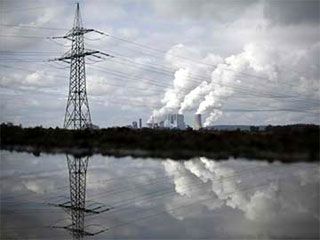US wants to include climate change deal in it; India disinclined  The power sector pact between the US and India, to be signed when Prime Minister Narendra Modi meets US President Barack Obama, has hit a logjam. The US has pushed hard to link a parallel agreement on climate change with the pact, which the Indian side has refused to do. India has pointed out the climate-change agreement the US wants to ink involves multilateral negotiations and unresolved costs for Indian industry, linked to intellectual property rights of alternatives.
The power sector pact between the US and India, to be signed when Prime Minister Narendra Modi meets US President Barack Obama, has hit a logjam. The US has pushed hard to link a parallel agreement on climate change with the pact, which the Indian side has refused to do. India has pointed out the climate-change agreement the US wants to ink involves multilateral negotiations and unresolved costs for Indian industry, linked to intellectual property rights of alternatives.
The continuing stand-off between the two countries has put the Cabinet note the Indian government would have to ratify for signing the agreement in a limbo. The memorandum of understanding (MoU) between the two countries on power is primarily about sharing of knowledge and technical know-how in areas such as energy efficiency and smart-metering but the US wants to include another element to do with phase-out of refrigerant gases that add to global warming.
In meetings held over the past month with the power, environment and external affairs ministries, US delegations and officials have insisted that India agree to a bilateral pact that bans India’s use of a particular set of refrigerant gases. India has asked for resolution and clarity over alternatives, related costs and the issue of patents over the technology before it inks such a pact.
Additionally, India has disagreed with the US’ push to undertake the ban on these gases under the Montreal Protocol, which deals with
“We have seen some belligerence from the US side on this, which was unexpected,” said a senior government official party to the negotiations. “They seem to have hinged the entire MoU on the power sector to the separate issue of climate change. It is unfortunate.”
Initially, the US negotiators raised the issue with the power ministry also but Minister Piyush Goyal said while he was not in favour of such linkages in the MoU, the decision on climate change issues lay with his colleague, Environment Minister Prakash Javadekar, sources told Business Standard. “The US continues to press hard on this count, even though the ministers have repeatedly expressed India’s views,” said the official.
When asked about India’s stand on the refrigerant gasses issue, Javadekar said on Friday, “We also want to resolve this but the alternative has to be a reality. You cannot negotiate in hollow. Costs and intellectual property rights are issues. But we shall continue to discuss it.”
The government had assessed earlier some of the alternatives are yet untested for safe use and others are extremely costly, with the patents held by select US-based companies. It had also assessed that agreeing at the moment to ban the gas under the Montreal Protocol would also break the negotiating balance under the UN climate change convention, where a new global pact has to be signed by 2015.











